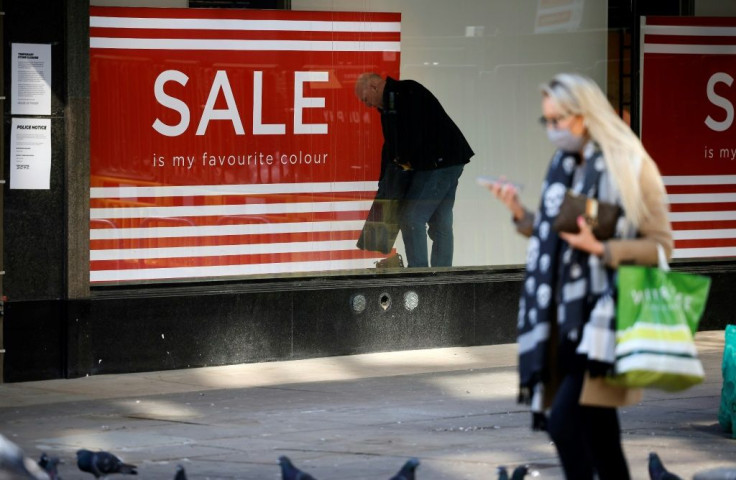UK Inflation In Shock Fall, Soothing Market Fears
Britain's annual inflation rate unexpectedly fell in February as coronavirus curbs sparked heavy discounting for clothing and footwear, official data showed Wednesday, soothing market concerns over inflationary pressures.
The Consumer Prices Index (CPI) rate slowed to 0.4 percent last month from 0.7 percent in January, the Office for National Statistics said in a statement, noting falls also for computer games, public transport, second-hand cars and toys.
Analysts' consensus forecast had been for an increase in the rate to 0.8 percent.
Wednesday's data confounds long-running concerns that massive global Covid stimulus, combined with pent-up consumer demand, could trigger soaring inflation and spark global interest rate hikes that damage recovery.
In the UK, clothing and footwear saw the sharpest price falls in more than a decade, down 5.6 percent in the year to February.
"Looking at today's figures you'd be forgiven for wondering why there has been such concern about rising inflation," said AJ Bell analyst Danni Hewson.
The Bank of England last week warned that UK inflation would approach its 2.0-percent target level in the coming months owing to energy price hikes.
It came as the BoE left its key interest rate at a record-low 0.1 percent and forecast that economic growth would recover towards pre-Covid levels later this year.

Separate data Wednesday indicated that Britain's vaccine-driven economic recovery was underway.
Private sector activity flipped into expansion in March, according to a survey from IHS Markit.
The composite purchasing managers' index (PMI) rose to a seven-month peak of 56.6 points in March from 49.6 in February.
A level above 50 points signals economic expansion.
"The UK economy rebounded from two months of decline in March, with business activity growing at its fastest rate since last August," noted IHS Markit economist Chris Williamson.
"Children returned to schools, businesses prepared for the reopening of the economy and the vaccine roll-out boosted confidence," he added.
© Copyright AFP {{Year}}. All rights reserved.





















